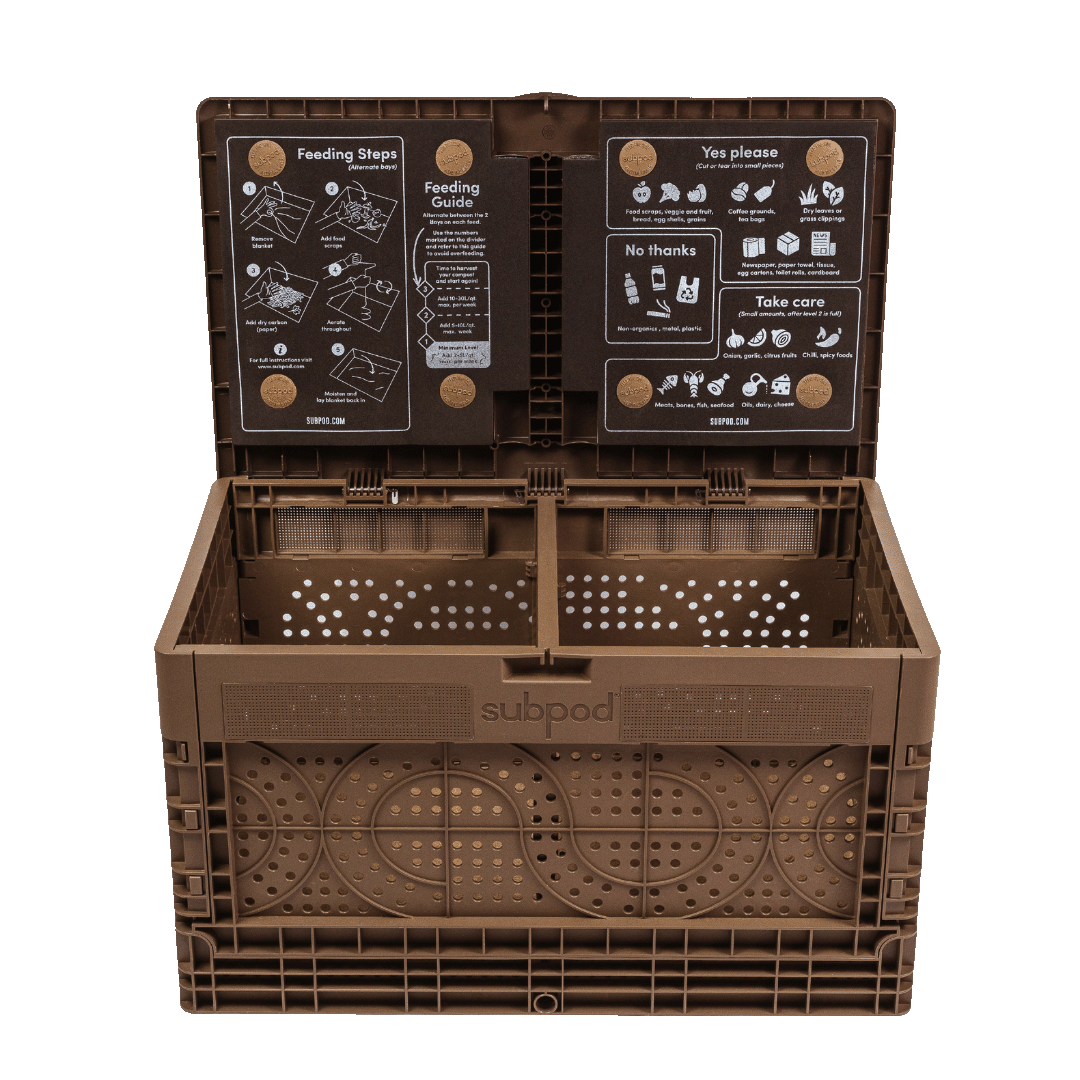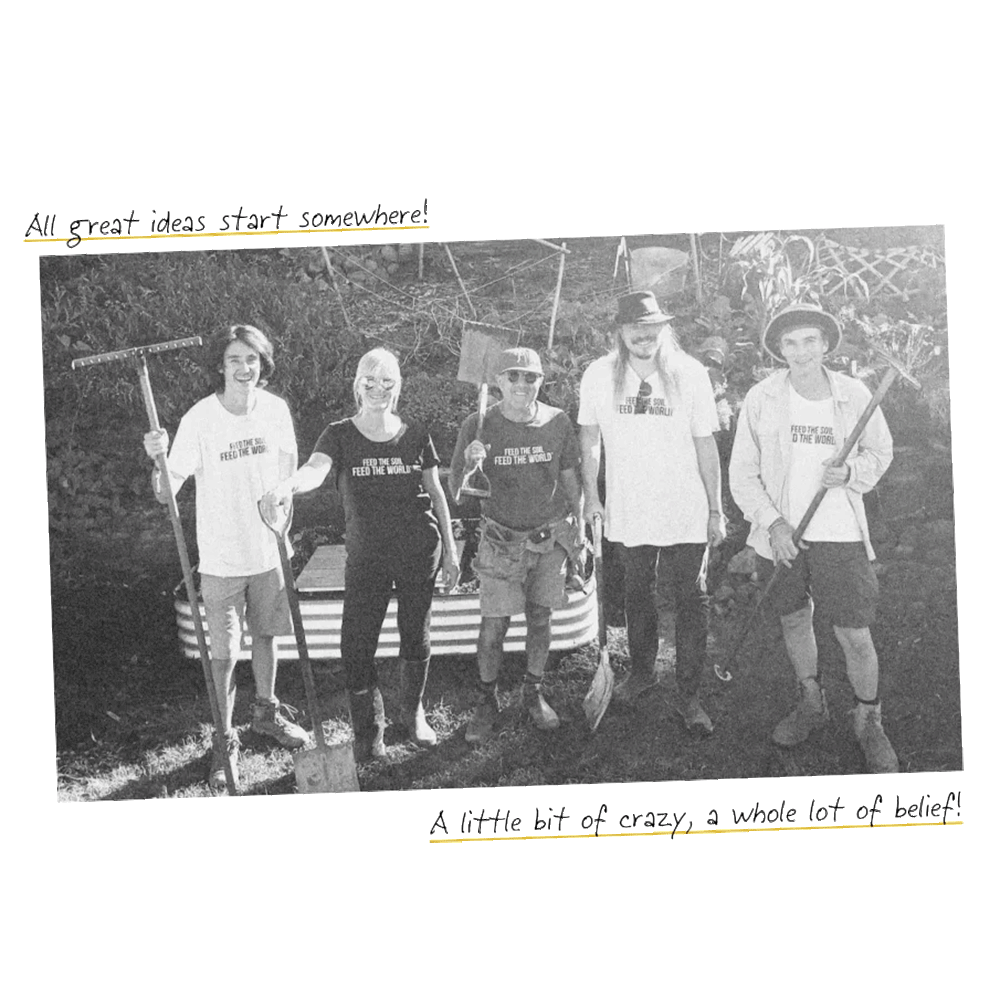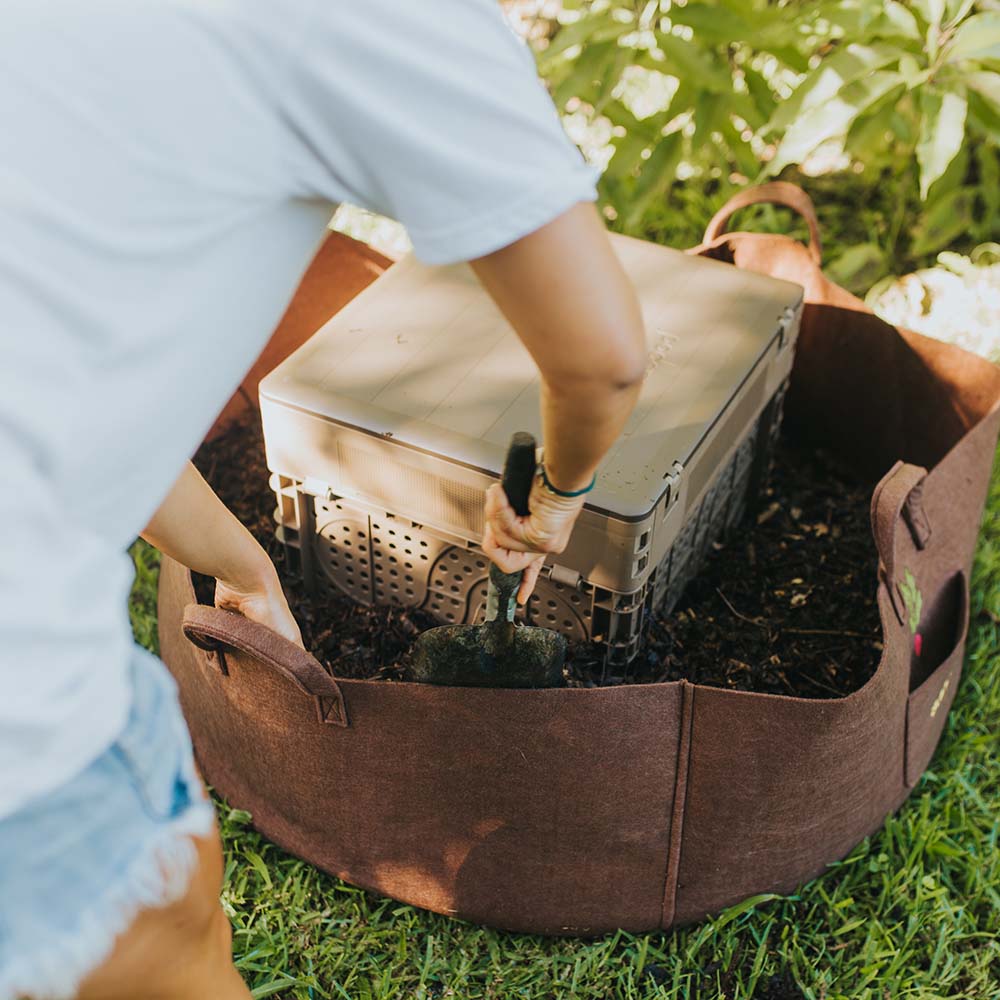Composting for Beginners: Dos and Don’ts (2023)
In this article:
Anybody who wants to live a more sustainable, planet-friendly lifestyle will have heard of composting. Boasting a range of environmental benefits, this awesome process will help you grow healthy plants in a lush, fertile garden. Sounds pretty good, right?
If you’re intrigued by composting and would love to know more, today we have your back! We’re going to dive into this complete composting 101 guide and find out, what can be composted and why composting is so important and much more. Let’s really dig into this!
What is Composting?
Composting is something that has been around for centuries, probably since the dawn of time! It’s a purely natural process whereby organic, biodegradable matter breaks down over time and forms a valuable organic fertilizer.
We all know that anything alive will eventually die and decompose. With composting, microorganisms, fungi, and worms speed up this process, creating a perfect environment for the decomposition to happen. The result is the nutrient-rich, dark organic matter called compost. It’s so valued by farmers and gardeners they refer to it as ‘black gold’!
While composting happens in the natural world all around us, we can harness the goodness of this process and compost in our own gardens. It’s also done in industrial facilities around the world on a larger scale, but today we’re more concerned with home composting and how to go about that.
Home composting is when you have a setup like a compost bin or worm farm in your backyard. The food waste from your daily lives goes in, and delicious fuel for your garden comes out!
Why is Composting Important?
Composting is essentially how nature recycles. It’s a powerful action that’s important for a number of reasons, including:
1. Fighting Food Waste
More than a quarter of the waste coming out of our households is food waste and garden waste. This is a huge drain on resources, as it creates waste disposal costs and additional pressure on landfill sites. Home composting allows us to divert our food waste out of that stream, turning it into something practical and beneficial.
2. Reducing Greenhouse Gas Emissions
When food waste slowly rots away in a landfill, it creates the greenhouse gas methane. This dangerous gas is 25 times more potent than carbon dioxide at trapping heat in the atmosphere. It’s a major contributor to global warming. By home composting we’re keeping our food waste out of the landfill and helping reduce methane gas emissions.
3. Improving Soil Health
The natural goodness of compost gives the soil in your garden an immense boost. It enriches the soil with the full spectrum of nutrients, from trace elements to essential nitrogen, phosphorus, and potassium. It also balances soil pH and optimizes soil density so that it retains the right amount of water to sustain plant growth.
4. Helping the Planet
The stats are nothing short of frightening. 33% of all food produced is wasted, and it makes up more than 50% of landfill around the world. If we managed to eliminate food waste, it would have the same effect as removing a quarter of all the cars in the world off the roads! Composting helps promote a sustainable, circular economy that gives back to the planet.
5. Reduce Reliance on Synthetic Fertilizer
Composting builds up the resilience of plants, making them more naturally resistant to pests and diseases. Combined with its fertilization properties, this negates the need to use synthetic fertilizer or pesticides. As well as being expensive to produce, these can have adverse side effects on the environment.

What are the Basic Materials for Composting?
There are four essential ingredients required for the decomposition process to occur correctly. Each has its own special role and needs to be present in balance with the other three ingredients. These base ingredients for composting are:
 Green Materials
Green Materials
These nitrogen-rich materials tend to have a higher moisture content. They include the food scraps from your kitchen, grass clippings, hedge trimmings, vegetable offcuts and coffee grounds. Nitrogen is one of the building blocks of life and helps the decomposers grow and reproduce and become more efficient.
 Brown Materials
Brown Materials
These are rich in carbon, which could also be considered one of the building blocks of life. It’s really important in your compost bin. Examples of brown materials would be dry leaves, paper, cardboard, branches, or twigs. They help give your compost structure and prevent it from getting saturated.
 Oxygen
Oxygen
Another essential component in composting is oxygen, as it plays a vital role in facilitating the decomposition process. Without oxygen, the process of composting would slow down or stop altogether. Microorganisms in the compost pile like other living creatures require oxygen to survive and carry on with the decomposition process.
 Water
Water
Keeping correct moisture balance plays an important role in the composting process. The ideal moisture level for a compost pile is around 50-60% water content. Without enough water, the microorganisms will not be able to carry out their activities resulting in compost pile drainage. On the other hand, if moisture levels exceed the norm, it can lead to anaerobic conditions, which can produce unpleasant odors and slow down the decomposition process.
Another really important presence required in your compost bin is the decomposers that break down the organic matter. These include microorganisms like bacteria and fungi, as well as insects and nematodes. Worms are particularly important, especially if you use a vermicomposting setup like Subpod.
Other Important Conditions to Consider while Composting
Effective composting is often about getting the balance right between the basic materials mentioned above. Some of the things to think about include:
 Moisture Levels
Moisture Levels
The amount of water in your compost needs to be maintained at around 50-60%, similar to a wrung-out sponge. If it’s too dry, the organisms and worms struggle to function, and the process becomes slow. Adding moist green waste helps, or you could simply add water too. If your compost is too wet, it can become stagnant and smelly. Adding dry carbon in this case will help balance it out.
 Aeration
Aeration
Regularly aerating your compost helps with the natural airflow. Getting into the habit of aerating your compost at least once a week will help keep things ticking over nicely. Water levels won’t build up and your organisms will be getting the oxygen they require.
 Temperature
Temperature
The temperature in your compost affects the rate at which organic matter breaks down. If it’s too cold, worms and organisms slow down, using their energy to stay alive rather than spending it on breaking down the matter. If it's too hot, the decomposers can die off and your composting becomes a bit of a smelly mess. Regular aerating and monitoring of moisture levels will help keep temperatures constant, as does keeping the right balance of green and brown materials.
 Location
Location
There are a lot of things to consider when it comes to determining the best location for your compost bin. It needs to be conveniently located so it's accessible for regular deposits of kitchen waste. It should also be in a spot that’s well drained and shady, so that it doesn’t get saturated in heavy rainfall or dry out in the long summer days. Choosing an even spot will ensure the contents will be evenly distributed too.

What Can You Put in the Compost Bin?
Now you know the basic materials required, you’re probably wondering what’s ok or not ok to put into your compost bin. There are definitely some do’s and don’ts when it comes to the organic material you compost in a system like Subpod. So what can be composted?
You can basically compost all manner of food waste, from fruit and vegetable scraps to tea leaves, crushed egg shells, grains, pastas, breads and nuts. Many compost systems urge you to stay away from meat scraps, seafood or dairy products, but with a Subpod you can compost these in small amounts. You just need to introduce them slowly so your worms can get used to them!
All the trimmings from your garden can go in. Cutting them up small will make the process faster, and we’d recommend not adding anything treated with chemicals of any sort. This could harm the beneficial organisms.
Charcoal from natural wood is fine, as is all kinds of paper and cardboard. Shred it first, and make sure there isn’t any paint or laminate on it. Sawdust, hair and fur, wood chips, coffee grounds and anything made from natural fibres is A-ok for composting.
Of course this is not the final list of the ingredients you can compost. In fact every ingredient or material you consider to put into compost bin requires special attention and knowledge because every product has its specification. Check the list of materials to know what to compost.
How to Understand That Your Compost is Finished?
Knowing when your compost is ready for harvesting isn’t actually all that technical. That said, it's important your compost is mature and ready before spreading it around your garden. Immature compost could contain acids or pathogens that are harmful to your plants, and it could attract pests too.
So how can you tell if your compost is ready? Here are the signs to look for!
1. The appearance and texture
Your compost should be at a stage where it looks like rich, dark soil rather than semi-decomposed food waste. It will be crumbly and light to the touch, feeling like nicely aerated soil with no big chunks in it.
2. The color
It is dark brown or black in color. Remember the ‘black gold’ that farmers and gardeners value so highly? This is it!
3. The odor
Earthy, pleasant scents should fill your nostrils when you smell your compost. If it's sour or ammonia-like instead, then it hasn’t decomposed enough and you’ll need to wait a while longer.
4. The temperature
The temperature inside your compost should match the outside temperature. This means the organisms have finished working! If it’s hotter than surrounding temperatures, the decomposition process is still underway.

Uses of the Finished Compost
The excitement of harvesting your compost grows when you realise how much you can do with it around your garden! Here are some suggestions:
1. Work it into your garden beds: Mixing it with the soil in your garden will improve the structure, water retaining capabilities and pH of your soil. The nutrient content will also increase, helping create fertile beds for a lush garden!
2. Use it as mulch: Spreading it around your plants as a top dressing keeps soils moist and makes it difficult for weeds to grow.
3. Apply it to your lawns: Compost is a natural fertiliser, so applying it across your lawns will make the grass grow nice and healthy.
4. Mix it into your pot plants: Adding compost into the soil supporting potted plants will improve their health and resilience.
5. Create a ‘compost tea’: Mix it with water to create a nutrient-filled liquid you can spray on and around your plants.
If you end up with more compost than you need in your space,offering free compost is a great way to connect with neighbours! You could also consider donating it to a local school or council. It could turn into the foundation for a healthy, sustainable relationship!
Subpod as an Innovative Composting Solution
Whether you’re learning the ropes or are a seasoned professional looking for an easier way to go about composting, you’ll love Subpod. Subpod is an in-ground compost system and worm farm, using the ‘vermicomposting’ process to produce the black gold that your garden loves!
Vermicomposting relies on worms and microbes to break down food matter. This is much more efficient than the traditional method of composting, whereby organic waste is placed in a compost ‘pile’ where it decomposes over time.
Subpod offers many benefits over traditional composting and other solutions out there. Let’s take a look at what some of them are.







